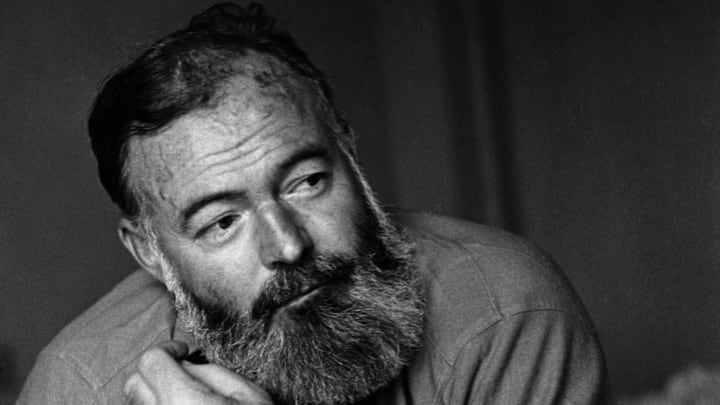“I am weak from so much internal bleeding,” the novelist Ernest Hemingway wrote. “Have been a good boy and tried to rest …”
But this was no fiction. In the spring of 1954, as Smithsonian reports, the author of The Old Man and the Sea and A Farewell to Arms sat down and wrote to his lawyer to address various financial matters. He also took the time to detail injuries sustained in not one, but two plane crashes that occurred just hours apart.
The debacle began in East Africa, where Hemingway and Mary Welsh—his fourth (and final) wife—were on a sightseeing trip in Uganda, which was intended as a Christmas present for Mary. The small Cessna plane they had just boarded suddenly pivoted to avoid a flock of birds, collided with a telegraph wire, and wound up in the Nile.
This first crash, while certainly unnerving, left both Hemingway and his wife with minor injuries: Mary with cracked ribs and Hemingway with a sprained shoulder. After camping out for the night, the two were spotted by a tourist boat in the morning. The vessel took them to Butiaba, where they boarded another plane. Incredibly, the aircraft caught fire during takeoff and tumbled back to the ground. The pilot and Mary were able to escape through a window. But Hemingway, a robust man, couldn’t fit through the opening. Instead, he smashed through the door like an erudite Kool-Aid Man, injuring his head in the process.
Such was the state of the news-gathering process of the time that word of the crash led to several media outlets prematurely declaring the Hemingways deceased.
Writing to his lawyer some months later, Hemingway related his injuries in a matter-of-fact tone. His right arm was “burned to the bone”; his right kidney, ruptured; liver and spleen, injured. Mary could have suffered a head injury. Her memory was, Hemingway wrote, “not too hot yet.”
Some historians believe cumulative head injuries, including the one from the crash, may have contributed to depression and cognitive decline later in his life. Hemingway died by suicide in 1961.
Hemingway’s letter about the incidents, which recently surfaced at Nate D. Sanders Auctions and fetched an impressive $237,000, was handwritten because the author’s fingers were too badly burned to type.
